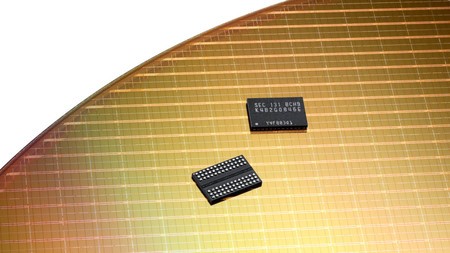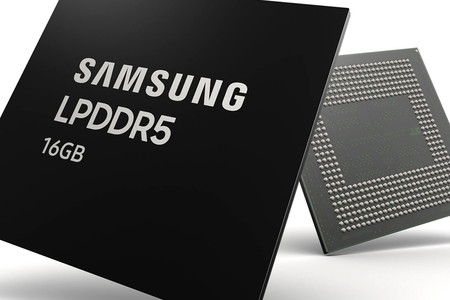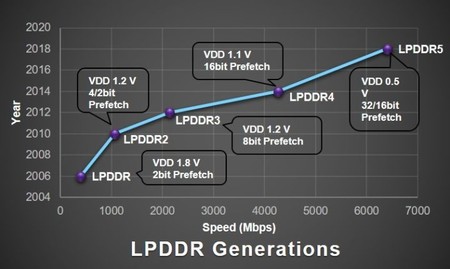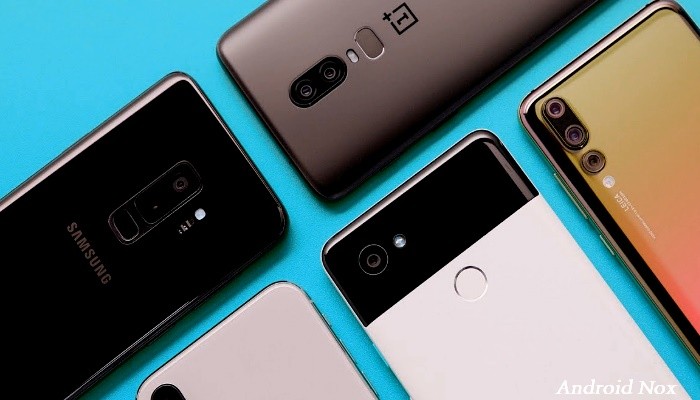Slowly but surely, mobile phones have become even more complex than personal computers, which is why more and more figures matter when evaluating possible purchases. And of course, to analyze them. The amount of RAM is one of these figures and it is also one of the most important when it comes to knowing how a mobile phone will behave in our hands.
We will try to explain now, in the clearest possible way, What does RAM consist of and what does a mobile phone use it for?, although it is actually also on board a multitude of devices. Understanding what exactly this type of memory we will know what happens when we have less than recommended. And incidentally, we will tell you a little about the types of RAM, even if only in passing.
What is RAM
 LPDDR4 RAM
LPDDR4 RAM We can start, if you like, for the more technical part and so we can get rid of it as soon as possible. RAM is a name made up of acronyms that correspond to Random TOccess Memory, what we can translate as random access memory. It is a type of memory faster (depending on its generation) than that of phone storage and which is also volatile, is ephemeral. When we reboot the phone (for practical purposes, it turns off and turns on alone) the RAM empties, but what we have stored in the phone does not.
In the last generations of mobile phones for sale we usually find two types of RAM, sometimes three. The most common is the LPDDR4 (often LPDDR4X if it is dual), or fourth generation memory, while the latest high-end phones are already arriving with LPDDR5, the newest. In older models or built to be as economical as possible we can find LPDDR3, but it is already very rare. The lower the number, the faster the read and write speed.
Once we are clear about what RAM is physically, we will try to explain plainly what it does, what it consists of, what is the reason for its existence. The operation of a mobile phone (actually any computer equipment) can be summed up in that the processor performs operations with the data that is stored in the internal memory. This is how everything works. We download a game, the processor collects its data and processes it, letting us play with it. But in that process, RAM is placed in the middle to streamline everything.
The processor does calculations that it remembers “from memory” before you have to write them down. Its memory is RAM.
The millions of operations per second that a processor performs must be constantly stored somewhere, and the internal storage of the phones is too slow. The processor does a calculation and the result has to go somewhere. Where are you going? To RAM memory. Once he makes that calculation and deposits it, he performs another calculation and deposits it, and so on. So when we open an app, a game or any software contained on our phone, much of that software is placed in RAM so that the processor can access it faster.
Making a somewhat rough simile, let’s imagine that we are building a wall and we need bricks that are in a truck. To make the process quicker, we take part of those bricks and give them to a pawn to help us and pass them to us, so we don’t have to go to the truck every time we need one. That is, in a very summary and simplistic way, what RAM does. Is very fast data storage that works very closely with the processor so that you have everything you need on hand that empties when the phone is turned off.
The importance of quantity and speed
 16GB of LPDDR5 RAM made by Samsung
16GB of LPDDR5 RAM made by Samsung Once we are clear about what RAM is for, it is logical to deduce that the more RAM we have and the faster it is, the better, not? Well this is totally true. Let’s think about a mobile phone and how we are normally using several applications at the same time. Maybe the browser, maybe a music player, maybe Instagram, maybe WhatsApp. Many apps open at the same time and that do not seem to open and close when going from one to another.
Being a memory support for the processor: the more, the better, the faster, the better.
What is the reason for this? The reason is that if we have enough RAM, we will be able to keep several apps open without the processor having to go back to internal memory to retrieve data, which would slow down the process. Mobile phones have been self-managing for a long time and if they need more RAM to throw away, and it is busy, they automatically close the oldest application of which we have open. So the more memory, the more applications open and running smoothly.
Thus, on a mobile phone it is better to have 6GB of RAM than 4GB, just as it is better to have 8GB than 6GB, or 12GB instead of 8GB. More memory equals better. But of course, speed also matters although this factor is more decisive when we talk about video games. Why? The reason is that video games have a much more powerful graphical section that requires a multitude of almost simultaneous calculations and, therefore, requires that the site where you put them temporarily is as fast as possible.
 RAM memory table
RAM memory table With equal amount of memory, a mobile game will go faster if we have LPDDR4X RAM than if we have LPDDR3 RAM, to cite two of the examples we gave earlier. Some will say that the GPU, the graphics card or graphics chip in the case of mobiles, already handles these tasks. It is true. But in mobiles the graphics is integrated into the processor itself, so, for practical purposes, the processor is the one that does it all, regardless of which part of it is the one that works more or less.
How much more RAM the better? Yes.
It happens that the question of if 12GB of RAM is needed in a mobile phone, or 16GB as some models that we will begin to see. The quick and short answer is: no. Not necessary. Not today. Today there are no applications or games that need such a large amount of RAM to function. The most thoughtful answer, however, is: it is not necessary but it is very useful. For example, to open two heavy games at once. Or various heavy applications. Because if a mobile phone does something, it is trying to take up as much RAM as it can. Think about it, thanks to it the processor works better and faster. So the more we give him, the better for him. And for us.










